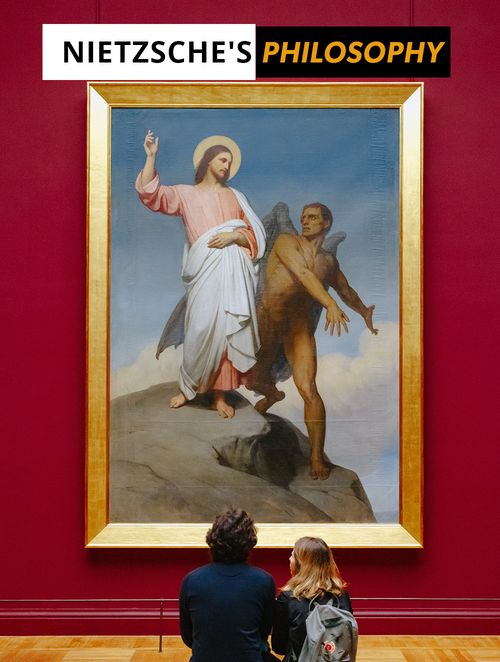Modern Philosophy 101: Nietzsche
Nov 10, 2020 · 3 mins read
0
Share

Will to truth >> the will to power
Friedrich Nietzsche (pronounced ‘Neet-sha’) was born in Röcken, Prussia in 1844. His father, a Lutheran minister, died when he was only 5.
Save
Share
After graduating from boarding school, Nietzsche studied classical philology at university. He was considered so brilliant that at only 24 he was made a professor at the University of Basel.
Save
Share
But after this promising early start, illness (physical and mental) and a truly independent spirit saw Nietzsche fall outside the mainstream. He lived in a series of rented rooms around Europe so he could write in peace and take long walks.
Save
Share
Nietzsche’s dismissal of philosophy as an objective science allowed him to write in a brilliantly personal, and often mad, style. His insights today still seem very fresh, and his emotion-charged, non-technical prose could not be more different to today’s dry, overspecialized academic writings.
Save
Share
Nietzsche saw the history of philosophy as an expression of the ‘will to Truth’, yet this obsession with truth was simply an arbitrary prejudice. Why are philosophers not as much interested in untruth or uncertainty, he wondered?
Save
Share
“In spite of all the value which may belong to the true, the positive and the unselfish, it might be possible that a higher and more fundamental value for life should generally be assigned to pretense, to the will to delusion, to selfishness and cupidity.” Nietzsche
Save
Share
Perhaps good and evil are less distinct than we think, he suggested in Beyond Good and Evil. But in the interests of purity, we like to see them as separate.
Save
Share
Nietzsche thought that psychologists were wrong in saying that people and animals are governed by self-preservation, or the survival instinct. Rather, the chief aim of animals is to discharge their strength.
Save
Share
This is Nietzsche’s famous Will to power. We want to keep living not for its own sake, but so that we can express our powers.
Save
Share
At the same time, he did not believe in free will. How does that square with the Will to power, and Nietzsche’s concept of the ubermensch (‘superman’), the sovereign actor who is free of all the usual moral conventions and ways of seeing?
Save
Share
0